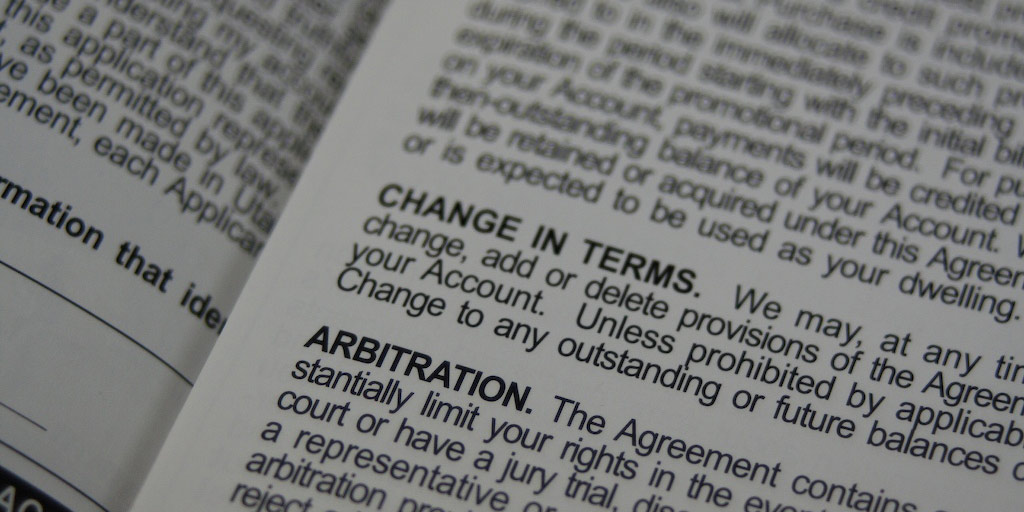Why Article 13 will be negative for creative content
 CREDIT: CHANGE IN TERMS TAKEN BY MICHAEL SIMMONS (FLIC.KR/P/GV8SD)
CREDIT: CHANGE IN TERMS TAKEN BY MICHAEL SIMMONS (FLIC.KR/P/GV8SD)Article 13 looks like it will affect the Internet negatively on an international level.
For the past year, there has been a lot of news focused on policy changes happening on online platforms. I mean, I for sure was probably not the only one who noticed a huge influx of emails from websites like Facebook, Discord, Google that happened in the summer of this year. That was due to updates by these websites made to accommodate for changes happening in web policies.
Due to the most restrictive laws being taken into consideration by websites, everywhere internationally gets affected. In my opinion, this is a correct course of action for websites to take. Of course companies, like YouTube, Google, Facebook and Twitter, want to make sure that copyrighted content is not posted and shared on their sites, so they do work to ensure copyright material stays off their sites by using programs and other methods to weed out those who are doing scrupulous things.
But that won’t cut it if Article 13 gets passed.
What’s Article 13 you ask, and why does it affect you?
The official name is the European Union Directive on Copyright in the Digital Single Market, a copyright law that is designated to limit how copyrighted content is shared on online platforms, a.k.a. the Net. If passed, states under the EU would be expected to take on the legislation as well. This would mean a big part of the Net would need to abide by the legislation.
However, it is not the entirety that we net users should be worried about, it is Article 13, one of the many in the legislation, that has a bunch of platforms up in arms protesting the passing of the directive.
It is this part in Article 13 that states, as found in the directive posted by the EU Parliament that explains more.
“…Online content sharing service providers and right holders shall cooperate in good faith in order to ensure that unauthorized protected works or other subject matter are not available on their services.”
It’s not obviously immediate, but there is a glaring factor with the proposed law. And that is in its wording.
How far do you need to go before you hit ‘copyright’? What exactly does “in good faith” mean? How does the legislation even want the platforms to deal with copyright issues?
It is because the wording is so loose that it is causing many to be nervous about the passing of such a law.
As it is worded now, there is no way for websites such as YouTube or Twitter to be able to allow users to post content in the EU with anything they cannot claim as their own, this includes visuals and music. This is especially detrimental to content creators, who make their livelihood by making content on the things they love.
Being an avid fan of many Youtubers such as Game Theorists, CinemaSins, Watch Mojo and more, I can say that I would hate it if this law was implemented as it is. These creators I love to watch will be hit the most negatively by this law because we don’t know if they will fall into the realm of copyright or not, so You- Tube would be forced to block their content. And like mentioned before, it is not just You- Tube creators who will be hit. Fans who post images on Instagram, Reddit, Facebook and other places will most likely have their posts banned. Because unlike before, it will be the platform’s responsibility to, “in good faith”, flag these posts and content as copyright infringement.
Article 13 is even being named as the ‘meme ban’ because memes are created content that is using another work, therefore falling under copyright. At the same time, some say it might fall under the parody law instead and be in the clear. We don’t know for sure.
These platforms are fighting the fight, by letting the Internet know what Article 13 is and how it will effect the content creators you love to watch and I admire them for doing so and hope they succeed in making Article 13 fairer for everyone.
Check out these links for a more information on Article 13:
youtube.com/saveyourinternet/
youtube.com/watch?v=GbXHrj8k7dg
theverge.com/2018/9/13/17854158/eu-copyright-directive-article-13-11-internet-censorship-google
wired.co.uk/article/what-is-article-13-article-11-european-directive-on-copyright-explained- meme-ban
europarl.europa.eu/sides/getDoc.do?pubRef=-//EP//NONSGML+TA+P8-TA-2018-0337+0+DOC+PDF+V0//EN
Editorial opinions or comments expressed in this online edition of Interrobang newspaper reflect the views of the writer and are not those of the Interrobang or the Fanshawe Student Union. The Interrobang is published weekly by the Fanshawe Student Union at 1001 Fanshawe College Blvd., P.O. Box 7005, London, Ontario, N5Y 5R6 and distributed through the Fanshawe College community. Letters to the editor are welcome. All letters are subject to editing and should be emailed. All letters must be accompanied by contact information. Letters can also be submitted online by clicking here.














